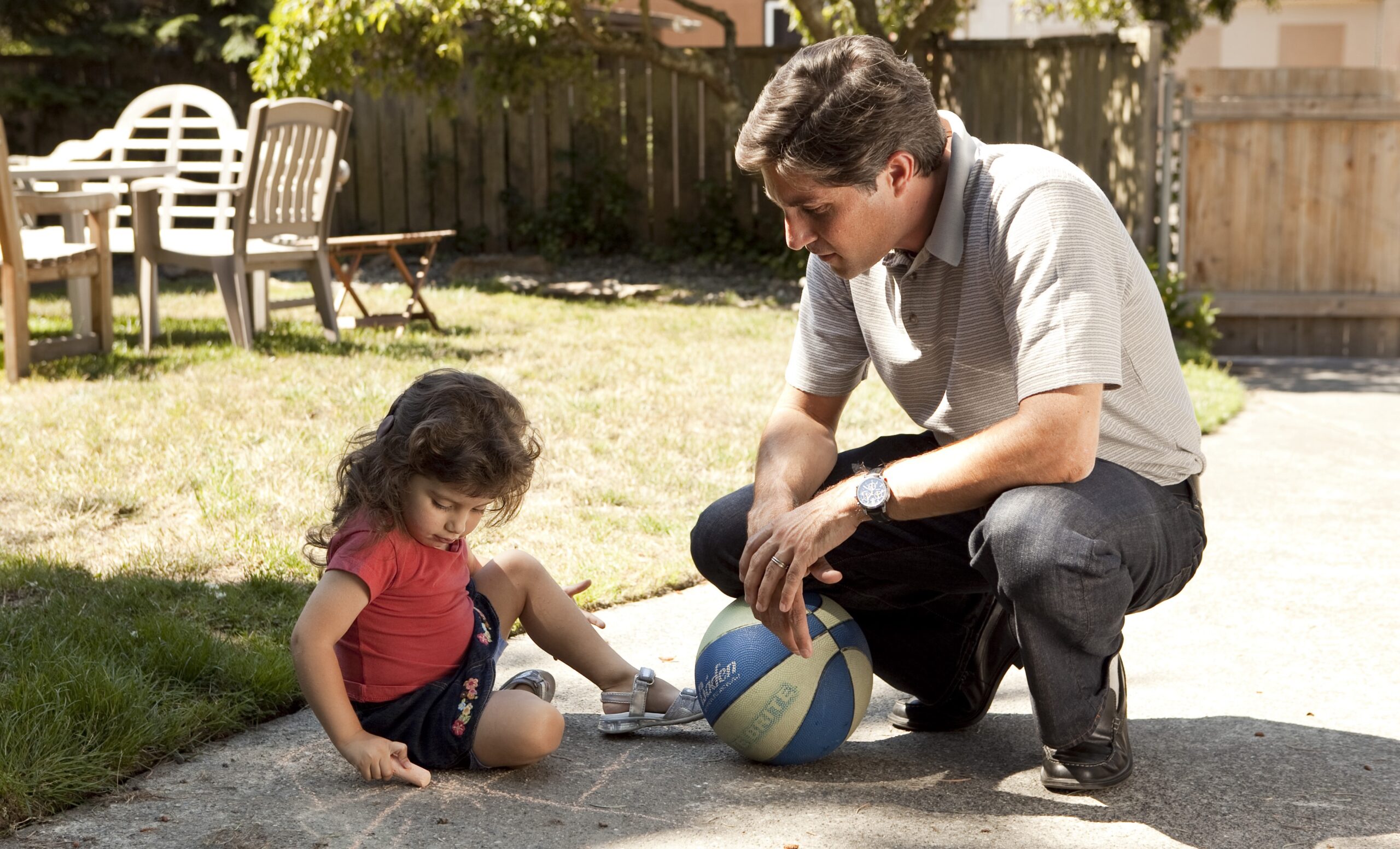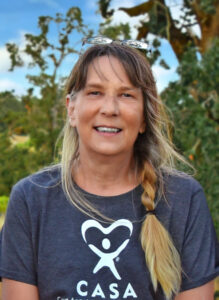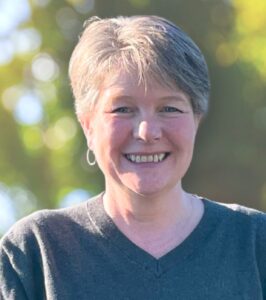
CHERYL ROMANO/Lincoln Chronicle
Count neglected and abused children among the victims of the Trump administration’s budget cuts.
Due to federal funding cuts that also reduced state support, the children’s welfare group that serves Lincoln and Benton counties is desperately seeking donations and even gone so far as to set up their own GoFundMe account.
Court Appointed Special Advocates – better known by the acronym CASA — is a national nonprofit program that provides court-appointed advocates for children removed from their homes due to abuse or neglect. The local group is CASA-Voices For Children and based in Corvallis and with an office in Newport.
CASA-VFC says it needs to raise $20,000 in donations this month. If it can’t, “We face the heartbreaking possibility of reducing and possibly suspending services” for youngsters (some as young as infants) caught in the child welfare system,” according to a news release.

“Everything seems to be hitting at once,” executive director Kari Pinard told the Lincoln Chronicle. “Federal funding for CASA has been eliminated, and state support has been reduced,” making the program “almost entirely dependent on local community contributions.”
Although money does come in from Lincoln County, the city of Newport and three tribal organizations, those sums don’t come near making up for CASA’s shortfall.
Gone from CASA-VFC’s funding is $240,710 from the federal and state governments. Nationally, an anticipated $1.7 million in congressional discretionary funds for states was also cut.
Pinard cited as examples a drop in grants that CASA was eligible to apply for: in fiscal 2023-25, there was $14.4 million available with 81 grants in Oregon. For 2025-27, funds have dropped to $3.7 million with 17 grants allotted in Oregon. The Lincoln and Benton county CASA programs were not one of the organizations receiving a grant.
Prevailing economic uncertainty is making things worse, Pinard said. Some grant-awarding foundations are cutting back and re-allocating funds, often to food banks in the teeth of federal food stamp chaos.
How to help
As a result, the 501(c)3 nonprofit is seeking tax-deductible donations. Contributors can use the group’s GoFundMe page, visit the CASA website, or mail a check payable to CASA-Voices for Children, 129 N.W. Fourth St. Suite B, Corvallis, Ore. 97330.
Part of what makes CASA’s fundraising a challenge, Pinard says is “We can’t show the focus of our work.”
“State law forbids us to identify any particular child, or tell their story,” she said, so heartstrings can’t be pulled via an image or an anecdote.
What can be conveyed, though, is the idea of “A five-year-old testing positive for meth and fentanyl, or a newborn going through meth addiction withdrawal; it’s horrific,” Pinard said.
CASA steps in when a judge places a child in foster care.
“Our trained volunteers help make sure that medical and mental health assessments are conducted, that therapy, if mandated, is ongoing, that school progress is monitored,” said Pinard.
In Lincoln County last year, 116 children were served by CASA-VFC. This year, the number is expected to rise to almost 140.
According to the Oregon Department of Human Services, in fiscal 2024, Lincoln County had the second highest rate of children in foster care — 11.4 per 1,000 children — out of all of Oregon’s 36 counties.
“In 2025, we have reduced staffing by five employees,” Pinard said. “Four employees served both (Benton and Lincoln) counties, and one was exclusively Lincoln County.”
That single Lincoln County employee is program coordinator Hazel West of Siletz. Along with four volunteer advocates, she has about 100 kids in both active care and being monitored.
“Many of these kids have parents struggling with substance abuse, food and housing insecurity, untreated mental health issues and unemployment,” said West. “In most cases, they’re in foster care because their parents could not care for them.”
What CASA does
A CASA volunteer attends meetings about a child’s progress, writes reports for the court, appears in court, and usually serves as the one adult consistently standing by a child as he or she navigates a confusing and overburdened legal system.
No special qualifications are needed to become a CASA volunteer, Pinard said. “It’s just everyday people stepping in to support our abused or neglected kids.”
In addition to seeking money, CASA-VFC is vigorously trying to recruit new volunteers and emphasizes that particular backgrounds in social work or the law are not needed.

“I came from the accounting world,” said West. “I wanted to do work that’s meaningful, and it’s been so rewarding.”
After some 10 months on the job, she finds the work extremely rewarding.
“These kids are amazing. We might have a tea party, or play with Legos, or just hang out,” West said. “No matter what the kids have been through, an eight-year-old kid is still an eight-year-old kid.”
To those who might think that CASA work is too emotionally difficult, West says “There are lots of roles you can play in our office,” in addition to being an active advocate.
But the core work — helping kids through tough times — West said, is “beautiful. You’re giving kids someone they can trust. That CASA advocate is the one stable, solid soul in a kid’s life.”
Training for new volunteer advocates includes being accompanied on visits to court and to parents’ homes by an experienced advocate.
“Maybe you just want to hold a baby,” West suggested, “or you’re good with preschoolers, or teenagers. There’s a kid out there who needs you.”
- People interested in finding out more about volunteering with CASA-VFC can contact the Corvallis office at 541-753-5838.
- Cheryl Romano is a Yachats freelance reporter who contributes regularly to Lincoln Chronicle. She can be reached at Wordsell@gmail.com


















